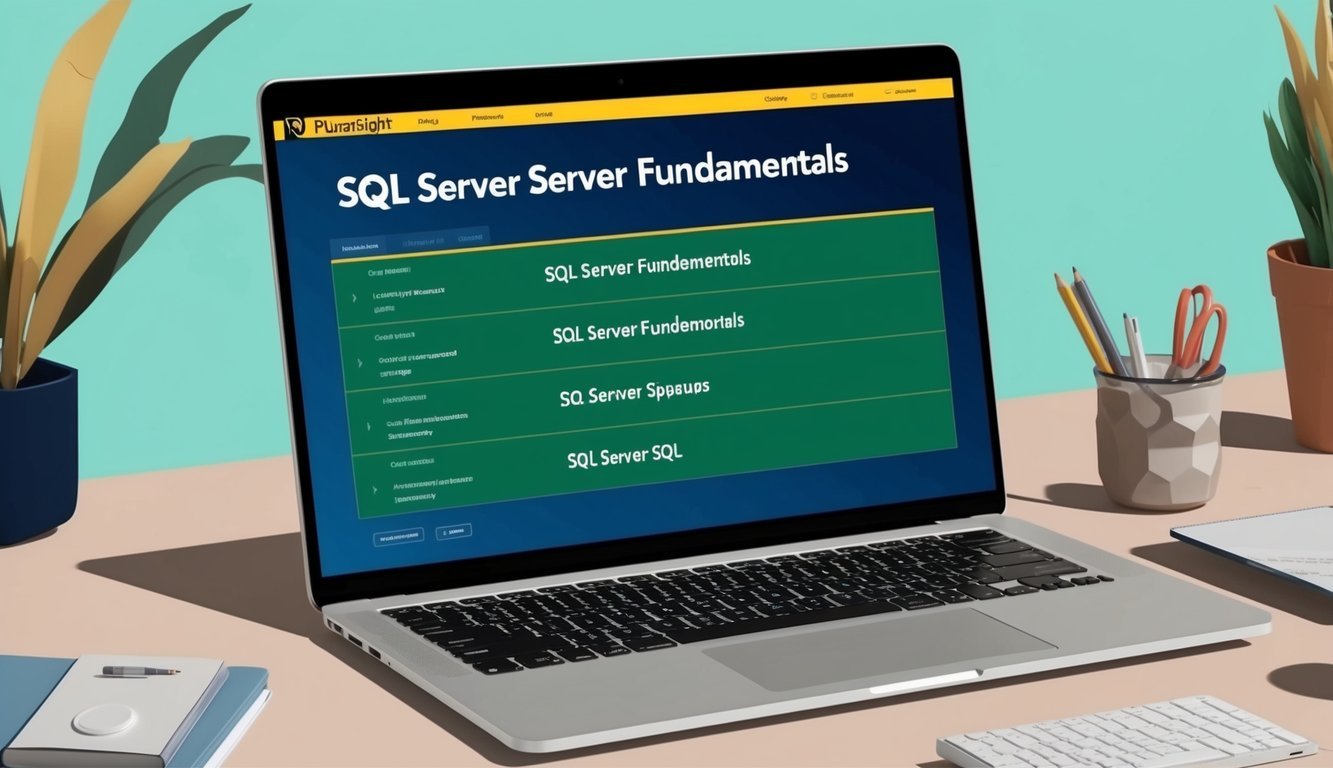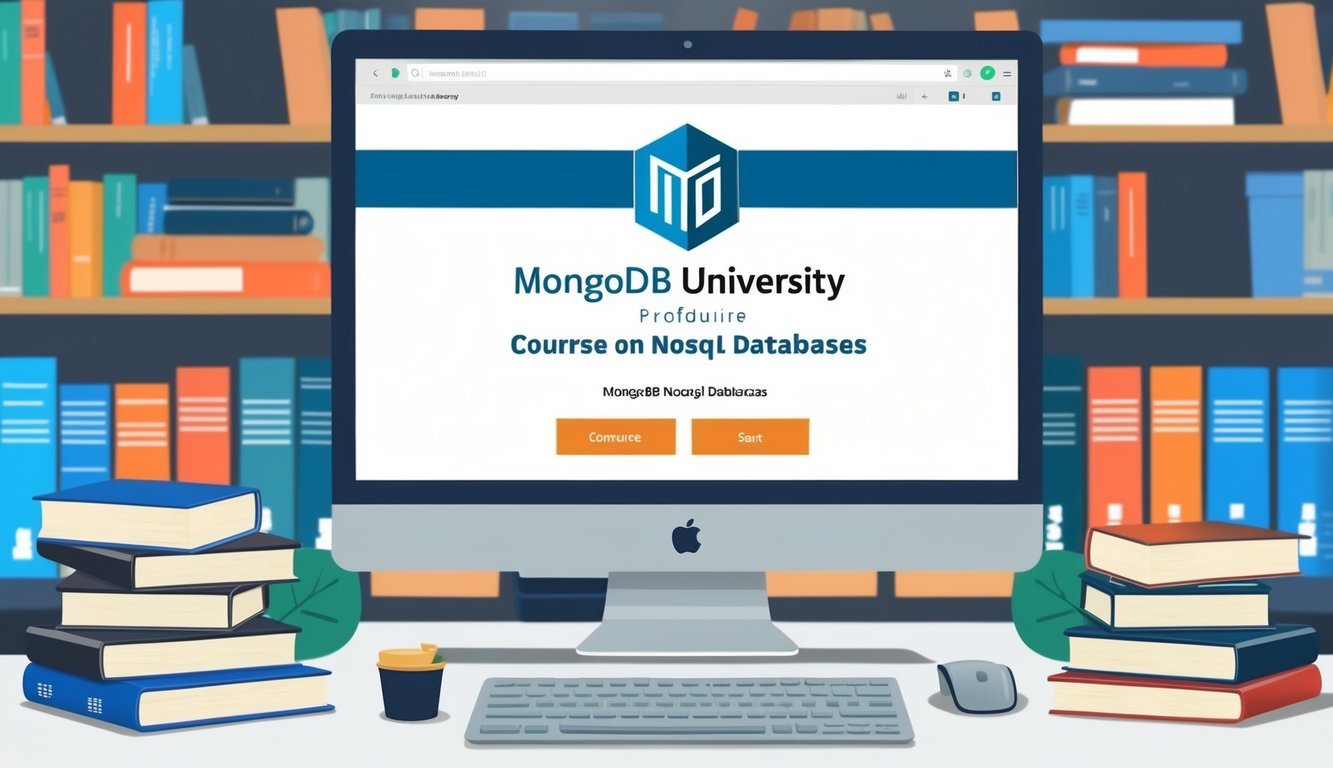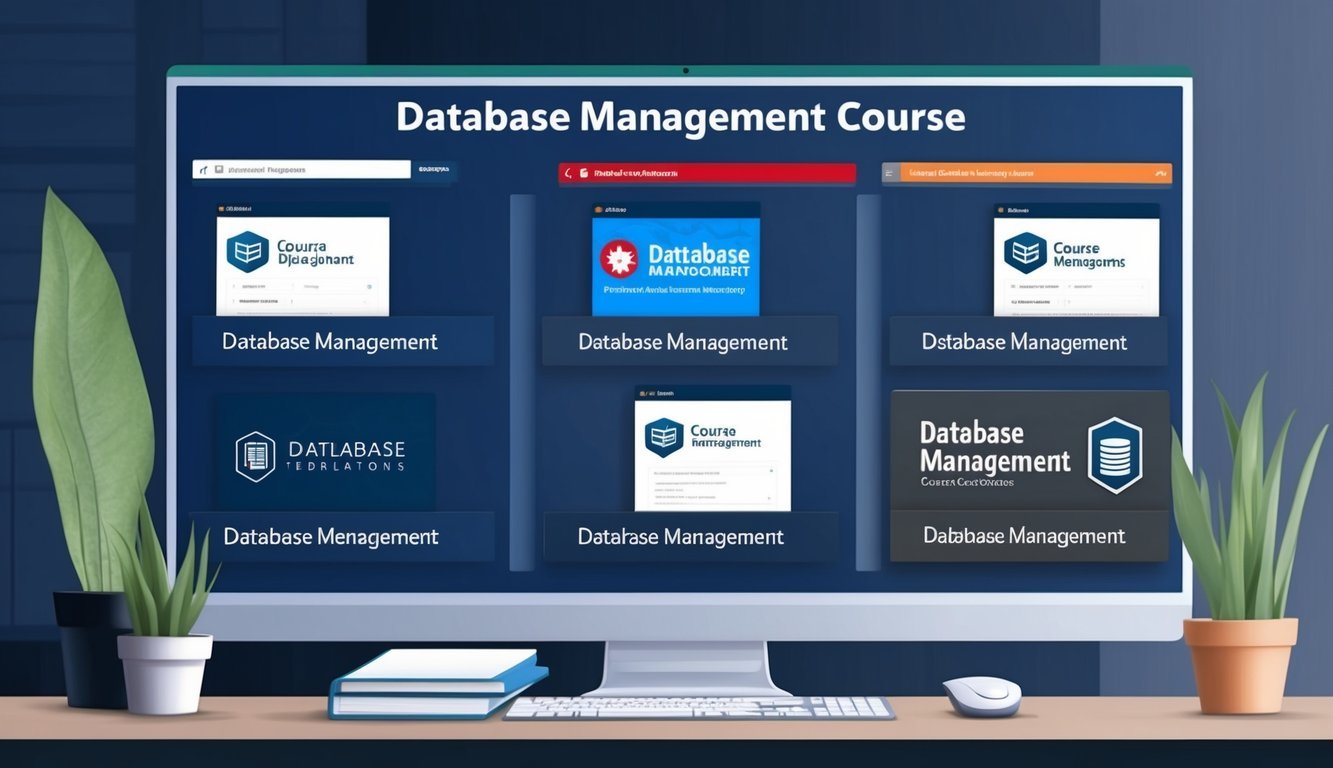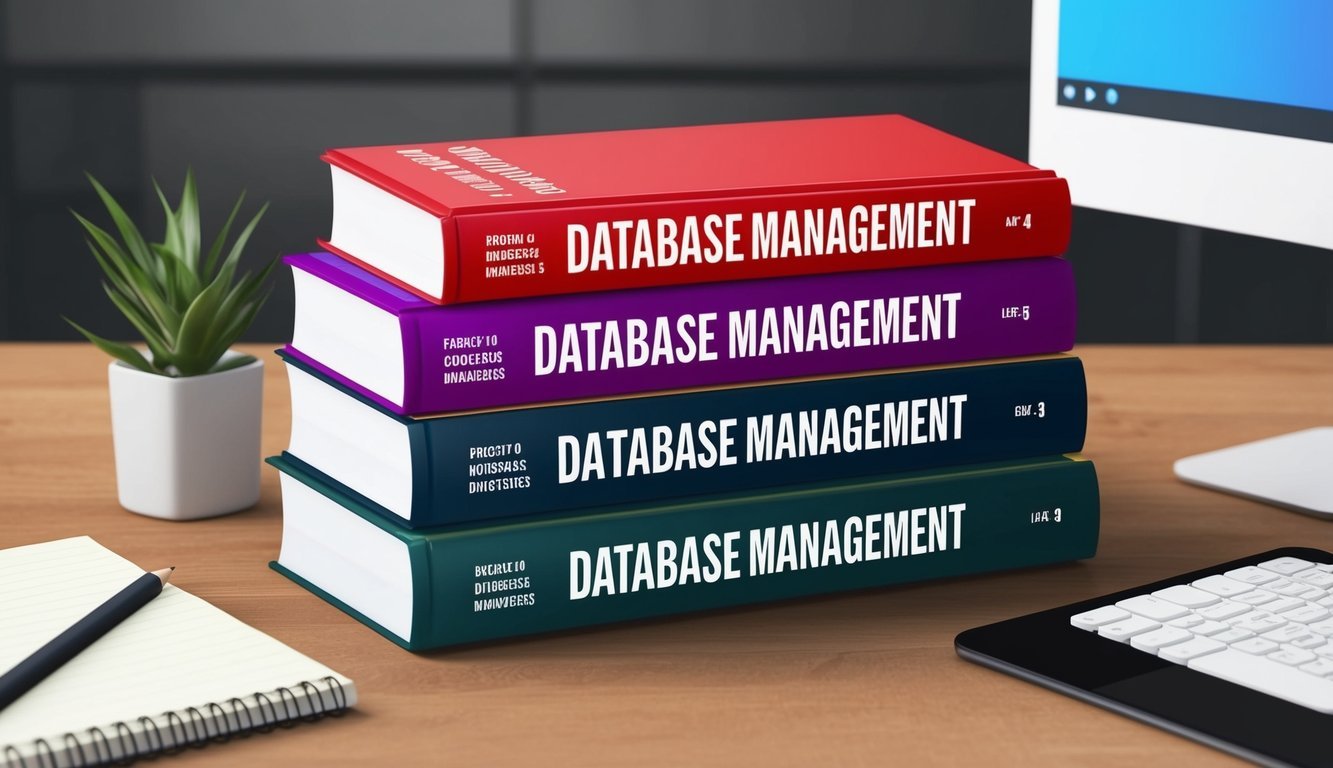“`xml
Ready to sharpen your database skills? You’re in the right place! The world of database management is always shifting, and there’s no shortage of fantastic courses to keep you on your toes.
Whether you’re just dipping a toe in or looking to elevate your skills, you’re bound to find something that fits your needs.
Check out these top database management courses that cover everything from the basics to advanced techniques. There are options for all skill levels, budgets, and learning styles.
Some courses narrow in on specific database systems, while others offer a more general overview.
With the right course, you’ll be well-equipped to become a database whiz in no time!
1) SQL for Data Science by University of California, Davis
If you’re keen on learning SQL for data science, you’ve got to check out this awesome course from UC Davis on Coursera.
It’s perfect for anyone new to SQL or looking for a refresher.
You’ll kick things off with the basics and gradually tackle more complex concepts, like writing queries, creating tables, and using case statements—no tech jargon here! It’s all about utilizing SQL to solve real-world data science problems.
The best part? You can learn at your own pace! With pre-recorded video lectures, you can watch whenever suits you best.
Plus, you’ll find assignments that let you test your knowledge along the way.
People who’ve taken this course rave about how fun and insightful it is.
You’ll get hands-on experience with SQL that’ll be valuable in your data science projects.
By the end, you’ll feel confident analyzing data like a pro.
The skills you pick up will serve you well in the ever-evolving data science landscape.
If you’re eager to enhance your SQL skills, definitely give this course a shot!
2) Advanced Database Administration by LinkedIn Learning
Looking to take your MySQL skills to the next level? You’ll want to check out the Advanced MySQL Database Administration course on LinkedIn Learning.
It’s designed for analysts and BI pros eager to elevate their database abilities.
This course dives into robust tools for managing relational databases.
You’ll learn how to tackle complex queries and keep your data in tip-top shape.
Plus, LinkedIn Learning has a ton of other great database administration courses to choose from, covering everything from the basics to advanced tips.
Want to deepen your SQL knowledge? Their advanced SQL courses are exactly what you need.
They focus on optimizing databases and handling big data like a pro.
Along the way, you’ll get hands-on practice with things like indexing and transaction management.
Trust me, your database skills will be sharp in no time!
3) Databases and SQL for Data Science with Python by IBM
Ready to boost your data skills? This great course from IBM, Databases and SQL for Data Science with Python, is ideal whether you’re just starting or already have some experience.
You’ll start with SQL basics before moving on to how to use SQL with Python.
The course covers all the key elements, like SELECT, INSERT, UPDATE, and DELETE statements, and even touches on JOINs and sub-queries.
One of the coolest features? You’ll be practicing with real databases using tools that data scientists actually use in their jobs.
Can you picture it? Writing your own SQL queries and extracting data using Python tools like Jupyter notebooks feels pretty slick!
The course wraps up with a project analyzing real-world datasets—what a great way to apply everything you’ve picked up, right?
No need to stress if you’re new; it’s crafted to be accessible for beginners just like you.
4) SQL Server Fundamentals by Pluralsight

If you want to get a solid grip on SQL Server, don’t miss out on the SQL Server Fundamentals path on Pluralsight.
It’s a fantastic starting point for anyone diving into database management.
This course covers all the essentials, from database structure to data storage.
You’ll learn to create objects and work with data using SQL statements.
A neat aspect of this path? It gets you prepped for the Microsoft 98-364 exam, which is a big plus if certification is on your radar.
The course is taught by experts like Ben Weissman, a Microsoft Data Platform MVP.
With decades of experience, you’re learning from someone who truly knows their stuff.
You’ll also get practical, hands-on exercises to help solidify what you’ve learned, making it easier to retain those concepts when you’re out in the field.
By the end, you’ll have a strong base in SQL Server that’s applicable in many IT and data-related roles.
5) Database Management Essentials by University of Colorado Boulder

Looking to build a solid foundation in database management? Look no further than the Database Management Essentials course on Coursera.
It’s perfect for beginners wanting to break into database development or business intelligence.
In this course, you’ll learn how to create relational databases from scratch and gain hands-on practice writing SQL statements to pull info from databases.
Key topics include database design and modeling, and you’ll even dive into entity-relationship diagrams to make your databases more efficient.
No worries if you’re a total newbie; the course is tailored for those without prior experience.
It’s part of a larger specialization in data warehousing, so if you enjoy it, you can keep learning.
By the time you’re done, you’ll walk away with practical skills you can apply to real-world database projects.
Plus, you’ll be prepped for more advanced topics if you decide to keep growing your skills!
6) Introduction to NoSQL Databases by MongoDB University

Curious about NoSQL databases? This course from MongoDB University is an excellent place to start.
It’s tailor-made for beginners eager to dive into this exciting area.
You’ll gain hands-on experience with NoSQL databases and learn about Database-as-a-Service (DaaS) offerings.
The course breaks down the fundamentals of Big Data and how NoSQL fits into today’s development landscape.
With five modules that build on each other, you’ll grasp the concepts step by step.
By the end, you’ll understand why NoSQL databases are becoming all the rage and how they differ from traditional SQL databases.
This course serves as a solid stepping stone if you’re considering using MongoDB in your projects.
Benefits of Taking a Database Management Course

Taking a database management course can be a game-changer for your career and amp up your data-handling abilities.
You’ll gain in-demand skills and learn to work with powerful tools.
Career Advancement Opportunities
Understanding database management can open plenty of doors.
Many roles require knowledge of working with databases, like database administrator, data analyst, or even data scientist.
These positions are often well-paying and come with job security.
As more companies latch onto big data, the demand for database experts continues to surge.
You might find opportunities in tech, finance, healthcare, and beyond.
A course can give you a leg up in job applications, showing employers you’ve got valuable skills and a commitment to your career path.
Improved Data Handling Skills
Database courses equip you with the tools to organize and use data more effectively.
You’ll learn how to create and manage databases that keep information secure and easy to access.
You’ll get comfortable using SQL, a vital language for database work.
This skill lets you extract exactly what you need when you need it.
Additionally, these courses address data security, showing you how to protect sensitive information from cyber threats and mishaps.
In today’s digital age, that’s super important.
Plus, you’ll sharpen your problem-solving skills.
This can boost your efficiency at work, helping your company make smart, data-driven decisions.
How to Choose the Right Course

Selecting the right database management course can feel overwhelming.
Think about what you want to learn and how much time you can dedicate.
Here are a couple key factors to consider.
Understanding Course Content
Look for courses that align with your skill level and goals.
Are you just starting out, or do you have some background knowledge? Free database courses can be fantastic for beginners, often covering the basics like SQL and NoSQL.
If you’re more experienced, check out courses that explore:
- Database design and modeling
- Different types of database management systems
- Scaling and performance tuning
Also, aim for courses that utilize up-to-date tech.
The database world evolves quickly, so you want to be learning current material.
Evaluating Instructor Expertise
A good instructor can make a world of difference.
Look for teachers with real-world experience who are in tune with the latest industry trends.
Check out course reviews and ratings too. Udemy courses usually have loads of student feedback that can give you a feel for the instructor’s teaching style.
Some traits to keep an eye out for in an instructor include:
- Clear explanations
- Hands-on examples
- Quick responses to student questions
Don’t forget to see if the instructor offers any support after the course ends—that can be a lifesaver when you hit a snag later on.
Frequently Asked Questions

Database management courses encompass a wide range of topics and skill levels, catering to beginners, advanced learners, and those wanting to specialize in areas like SQL or data science.
What are some top-rated courses for learning database management for beginners?
SQL for Data Science by UC Davis is a fantastic starting point for newbies.
It teaches you how to analyze data using SQL.
Another strong pick is Database Management Essentials offered by the University of Colorado Boulder, hitting the essentials of database design and management.
Where can I find the best free database management courses online?
You can find free database courses on platforms like Coursera and FreeCodeCamp.
The Database Systems course from Cornell University on FreeCodeCamp is a solid choice, covering SQL, NoSQL, and large-scale data analysis—all for free!
Can you recommend some good SQL courses that are popular among learners?
SQL Server Fundamentals on Pluralsight is a crowd favorite.
For a more in-depth approach, try Databases and SQL for Data Science with Python by IBM.
This one blends SQL with Python programming, perfect for data science tasks!
What should I look for in a database management course syllabus to ensure comprehensive learning?
Search for courses that cover database design, SQL basics, and data modeling.
Make sure they touch on different types of databases and cover basic administration tasks.
Hands-on projects and real-world examples are big bonuses!
Which online platforms offer the best courses for learning about different types of database management systems?
Look into Coursera, Udemy, and LinkedIn Learning for a wide array of database courses.
You can find some fantastic options for learning about various database systems, such as Advanced Database Administration on LinkedIn Learning.
What are the essential database courses to take for someone just starting out in database management?
Kick off with an introductory SQL course.
Then, grab a general database management course that covers design principles.
Finally, choose a course focusing on a specific database system like MySQL or PostgreSQL for hands-on experience.
“`
This friendly and conversational rewrite maintains the essential details while making the information feel relatable and engaging for the reader!

